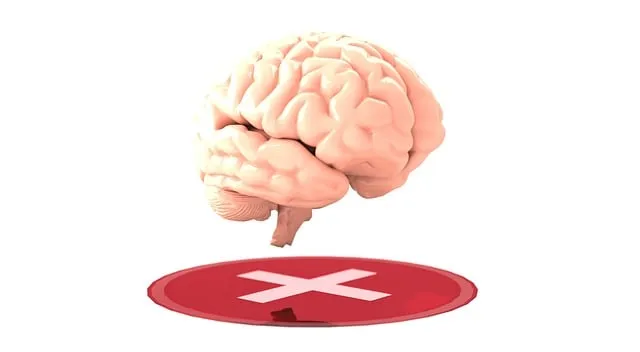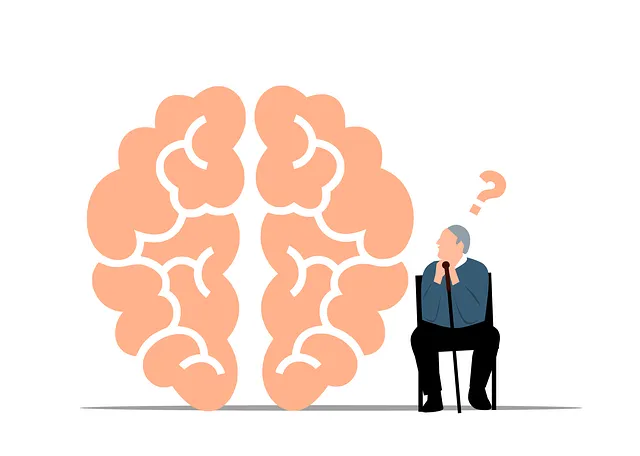Evaluating Kaiser Permanente's mental wellness programs at its Lakewood facilities involves a multi-faceted approach combining surveys, interviews, and stakeholder feedback. Data collection techniques like PHQ-9 and GAD-7 measure symptoms, while focus groups provide qualitative insights. This holistic method aligns with Mind Over Matter Principles, guiding improvements such as enhanced cultural competency training and social skills programs. Continuous improvement is driven by thorough analyses incorporating patient and professional feedback, ensuring refined mental health care outcomes within the community.
Mental wellness program evaluations are crucial for measuring the effectiveness of interventions, such as those employed by Kaiser Permanente mental health jobs Lakewood. This article explores key evaluation methods, beginning with understanding program goals and outcomes, and progressing to data collection techniques that assess mental wellness improvements. We discuss the importance of stakeholder feedback and its integration into continuous improvement processes. By examining these aspects, organizations like Kaiser Permanente can optimize their mental health programs for better patient outcomes.
- Understanding Program Goals and Outcomes: A Foundation for Evaluation
- Data Collection Techniques: Measuring Mental Wellness Interventions
- Utilization of Feedback and Stakeholder Perspectives
- Continuous Improvement: Implementing Changes Based on Evaluation Findings (Focusing on Kaiser Permanente mental health jobs Lakewood)
Understanding Program Goals and Outcomes: A Foundation for Evaluation

Evaluating a mental wellness program requires a deep understanding of its underlying goals and expected outcomes. At Kaiser Permanente mental health jobs in Lakewood, for instance, assessors must grasp the program’s mission to foster resilience building and anxiety relief among participants. This foundational knowledge guides evaluation strategies, ensuring that measures align with desired outcomes.
By focusing on key areas such as self-care practices and overall wellness improvements, evaluators can capture the program’s true impact. This involves employing various methods, from participant surveys to qualitative interviews, to gather data that reflects both immediate and long-term effects. Such a comprehensive approach enables continuous improvement and ensures the program achieves its intended purpose, ultimately enhancing mental health and well-being in the community.
Data Collection Techniques: Measuring Mental Wellness Interventions

Evaluating mental wellness programs is a multifaceted process, and understanding how to measure their effectiveness is paramount for organizations like Kaiser Permanente seeking to excel in mental health care, particularly at its Lakewood facilities. Data collection techniques play a pivotal role in gauging the success of interventions aimed at improving mental health outcomes. One common approach involves utilizing standardized assessments designed to capture changes in symptoms, functioning, and overall well-being before and after the program. These tools can range from clinical interviews to self-report questionnaires, ensuring comprehensive data on various aspects of mental wellness.
For instance, Kaiser Permanente mental health professionals in Lakewood might employ validated scales like the PHQ-9 (Patient Health Questionnaire) for depression screening or the GAD-7 (Generalized Anxiety Disorder 7-Item Scale) to assess anxiety levels. Additionally, qualitative methods such as focus groups or interviews can offer valuable insights into participants’ experiences and perceptions of the program’s impact. Integrating these data collection techniques allows for a holistic evaluation, enabling risk management planning and informed decision-making in mental health care delivery, including enhancing healthcare provider cultural competency training and implementing social skills training where needed.
Utilization of Feedback and Stakeholder Perspectives

The evaluation of mental wellness programs is greatly enriched by incorporating feedback and perspectives from various stakeholders, including those with direct experience in Kaiser Permanente mental health jobs Lakewood. This holistic approach ensures that the program’s effectiveness is assessed from multiple angles, aligning with the Mind Over Matter Principles that emphasize a comprehensive understanding of individual needs. By gathering insights from participants, healthcare providers, and support staff, organizers can identify areas for improvement, confirm successful strategies, and tailor interventions to better serve the community.
Stakeholder perspectives offer valuable nuances regarding the program’s impact on both personal mental health journeys and organizational dynamics. For instance, feedback from the Mental Wellness Podcast Series Production highlights effective communication methods and engaging content that foster open discussions about mental wellness. Empathy Building Strategies, as observed in stakeholder interactions, play a pivotal role in creating safe spaces for sharing experiences, fostering trust, and enhancing overall program quality.
Continuous Improvement: Implementing Changes Based on Evaluation Findings (Focusing on Kaiser Permanente mental health jobs Lakewood)

At Kaiser Permanente mental health jobs Lakewood, continuous improvement is a cornerstone of their approach to program evaluation. By implementing changes based on the findings from thorough analyses, they ensure that their mental wellness initiatives remain effective and aligned with the evolving needs of their community. For instance, if an evaluation uncovers gaps in access to certain therapeutic services, the team might develop innovative solutions like expanding telehealth options or integrating new evidence-based practices into their portfolio.
This dynamic process goes beyond simply reacting to results. It involves actively seeking feedback from both patients and healthcare professionals through Mental Health Policy Analysis and Advocacy, utilizing insights from Mental Wellness Journaling Exercise Guidance to track progress, and even leveraging the creative medium of a Mental Wellness Podcast Series Production to engage and educate the community. Through these integrated strategies, Kaiser Permanente mental health jobs Lakewood continuously refine their programs, ensuring optimal outcomes for those they serve.
Evaluating mental wellness programs, such as those implemented by Kaiser Permanente mental health jobs Lakewood, is a multifaceted process. By understanding program goals and outcomes, employing effective data collection techniques, incorporating stakeholder perspectives, and continuously improving based on feedback, organizations like Kaiser Permanente can ensure their mental health initiatives are not only meeting but exceeding expectations. This holistic approach to evaluation fosters better patient outcomes and enhances the overall effectiveness of mental wellness programs.






